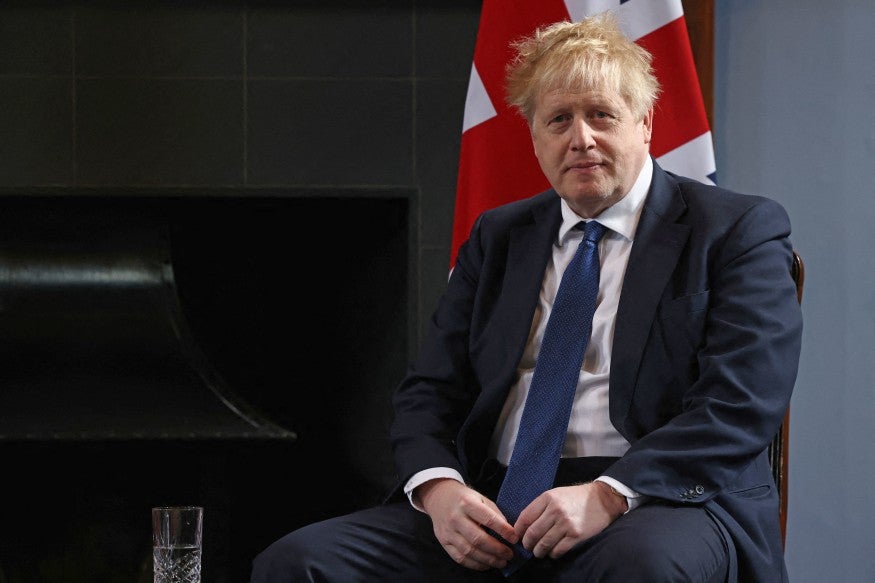Crunch time is coming for Boris Johnson and the cost-of-living crisis
Energy bill increases, by unhappy coincidence, will kick in on 1 April, and shifts in world commodity prices will feed through towards the summer. Just in time for the big round of local elections on 5 May, writes Sean O’Grady


While “It’s the economy, stupid” is the cliche, the simple truth that voters tend to vote on issues that bear on their standard of living – both their personal circumstances and the economic prospects for the country. Much overused as it has been – it has its origins in Bill Clinton’s presidential campaign three decades ago – it is still a serviceable guide to democratic elections. Money matters.
The voters are prepared to take global factors into account, but not entirely and not forever. Sooner or later they tend to get fed up with a government that fails to live up to the standard expectation that people will be better off than at the previous general election, or a least feel that way. The “culture wars” often feed into this basic debate – such as the mistaken and contradictory notion that immigration both reduces wages and takes job opportunities away – and add to pressure on public services as well as staffing them.
Which brings us to the latest report from the Resolution Foundation about the ever-tightening squeeze on household incomes. In quick succession Brexit, Covid-19 and now Russia’s war on Ukraine have added to an already deepening economic crisis. The conflict in Ukraine is forecast to further push up energy prices and wider inflation (to more than 8 per cent this spring), because, for example, Ukraine produces so much grain for world markets – causing typical household incomes across Britain to fall by 4 per cent in the coming financial year. That constitutes the sharpest fall since the mid-1970s. Indeed, British families are still reeling from the after-effects of the financial crisis of 2008 to 2009, and the decade or austerity that followed it.
Politically, the question is how much of the blame the government of Boris Johnson will cop, and how much will be excused or blamed on others. For example, if interest rates rise, and thus mortgages, overdrafts and business finance costs go up, the Bank of England might be the focus for any anger from the public – or indeed Tory backbenchers looking for a handy scapegoat.
Business, oil companies, energy suppliers and the supermarkets could – will – be accused of profiteering on rather flimsy economic grounds, given the reality of global pressures on the economy. True, the government cannot easily wriggle away from responsibility for the impending two national tax hikes (on employees and on employers – the “jobs tax”), and failing to cut VAT on fuel; against that they will plead that Covid and the care crisis demand a tax rise, and there’s some loans and council tax cuts to help out with the next bills.
We will know, soon enough. Many of the increases, by unhappy coincidence, will kick in on 1 April, and the increase in world commodity prices will feed through towards the summer. Just in time for the big round of local elections in Britain on 5 May – These will include elections for all London borough councils, and for all local authorities in Wales and Scotland. (Plus scheduled elections for the Northern Ireland Assembly, troublesome for the government in different ways). By that point the Consumer Prices Index (CPI) rate of inflation may well be closer to 10 per cent than 5 per cent, and three or four times the Bank of England's official target of 2 per cent.
By that stage, too, the war on Ukraine may have receded in voters’ minds, for all the wrong reasons, and Partygate and more domestic concerns – such as living standards – will be the centre of political attention. Johnson has made ambitious promises about levelling up and build back better, and he has his arguments/excuses ready, but the May elections will be the first time the nation as a whole will have had to give a verdict on how they think he and his government are doing (as well as some more local factors).
They are unlikely to boost Johnson’s chances of escaping the leadership crisis in time for the summer break, even if he does impress on the Ukraine war.
Join our commenting forum
Join thought-provoking conversations, follow other Independent readers and see their replies
Comments
Bookmark popover
Removed from bookmarks